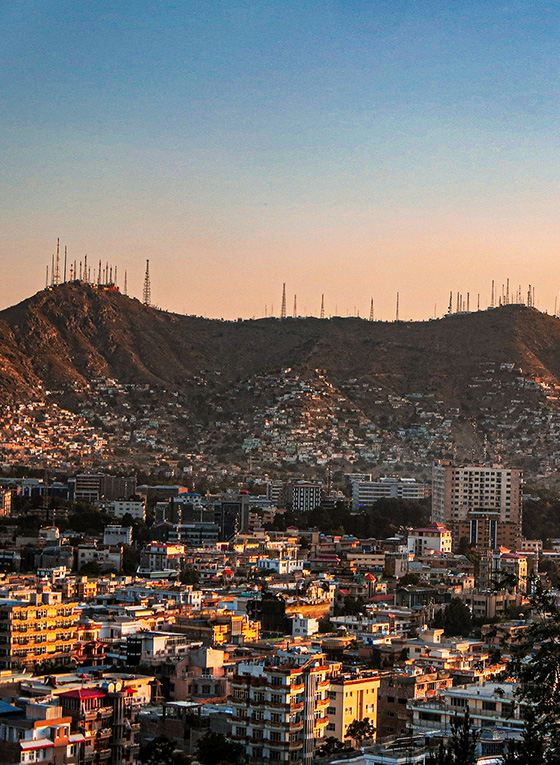Evacuations from High-Risk Locations Call +44 (0)1202 308810 or Contact Us →

Taliban Claim Attack Near Military Checkpoint In Kabul
15 Jan 2019
At least 22 people were killed, including two foreign nationals, and 120 were injured following a vehicle bomb attack near the heavily fortified Green Village compound in Kabul at 19.00 local time on 14 January.The vehicle-based explosive (VBIED) device was detonated at the Afghan National Security Forces (ANSF) checkpoint on the Custom House junction causing significant damage to buildings in the immediate vicinity of the blast. The Taliban subsequently released a statement claiming the attack was in response to the President’s appointment of the anti-Taliban advocate, Amrullah Saleh, as Interior Minister. All travel to Kabul should be for business-critical purposes only and supported by an accredited security provider.
KEY POINTS
- At least 22 people were killed, including two foreign nationals, and 120 were injured following a vehicle bomb attack near the heavily fortified Green Village compound in Kabul at 19.00 local time on 14 January.
- The vehicle-based explosive (VBIED) device was detonated at the Afghan National Security Forces (ANSF) checkpoint on the Custom House junction causing significant damage to buildings in the immediate vicinity of the blast.
- The Taliban subsequently released a statement claiming the attack was in response to the President’s appointment of the anti-Taliban advocate, Amrullah Saleh, as Interior Minister. All travel to Kabul should be for business-critical purposes only and supported by an accredited security provider.
SITUATION SUMMARY
A truck laden with explosives detonated near the Green Village compound at 19.00 on 14 January killing 19 and injuring over 100 people. The blast occurred in Police District (PD) 9 at an ANSF checkpoint on the Customs House junction indicating that the detonation of the device might have been triggered prior to the VBIED reaching its intended target. The explosion caused significant damage to residential buildings in the immediate area. The blast occurred in the eastern part of Kabul in an area where many of Afghanistan’s government offices are housed and international organisations continue to base their operations.
The Taliban claimed responsibility for the attack claiming that it was in retaliation to the Presidents Ghani’s decision to appoint Amrullah Saleh as Interior Minister. Saleh, the former Intelligence Chief, is vehemently anti-Taliban and his appointment is seen to be a move that will promote a more aggressive stance in tackling the militant insurgency.
Solace Global have issued 71 security alerts for Kabul in the last six months highlighting a consistent threat to travellers in the city. Those currently in, or travelling to, Kabul should ensure they have access to secure compound-based accommodation with a safe room and conduct all road movements alongside a trusted and accredited security provider. If you notice any suspicious activity near your compound report it immediately to the site security focal point and escalate to your emergency point of contact.
SOLACE GLOBAL COMMENT

(Image 1: Solace Global Security Alert Heatmap, Kabul, Afghanistan)
Despite increasing competition from other militant groups, the Taliban remain the most organised and lethal insurgent group in Afghanistan, possessing both the desire and capability to carry out largescale and coordinated attacks in Kabul, often targeting high profile locations or individuals. Eastern Kabul is one of the most heavily guarded areas in Kabul and due to the heightened security, remains an attractive target for militant groups seeking to expose weaknesses in Afghanistan security infrastructure. The Green Village compound houses several foreign organisations including UN agencies and military contractors. The compound is a purpose-built secure facility with a military standard of security and surveillance including blast walls, underground bunkers, face recognition CCTV and a NATO-standard armoury. Today’s attack follows a trend of the Taliban seeking to launch attacks in Kabul against areas considered “safe or secure zones”. Such attacks are a clear tactic by the Taliban to reduce the desire of foreign organisations and government to operate in the country.
Yesterday’s bombing is the latest in a series of attacks against high profile areas of the city. On 24 December 2018, militants infiltrated the Department of War Veterans in Wazir Akbar Khan, central Kabul, laying siege to the compound for several hours, killing 42 people. On 28 November the Taliban claimed the complex attack and siege of the Camp Anjuman compound, located next to the Green Village, housing international security contractor G4S. The attack, which the Taliban claimed was in response to G4S’s role in airstrikes that occurred earlier in the day in Helmand province, killed 10, including a British security contractor, and injured 19.
Over the last year, the Taliban have made territorial gains in numerous provinces in the country, controlling around 59 (14.5 percent) districts in the country and contesting with the Afghan government 119 districts (29 percent). Throughout 2018, the Taliban predominantly targeted Afghan National Defense and Security Forces (ANDSF) bases and outposts in an effort to drive government forces out of certain districts however the group have continued to launch attacks in Kabul on a consistent basis, often targeting government offices as well as foreign assets thought to be involved in the ongoing military campaign. During the parliamentary election period at the end of October, the Taliban launched over 400 attacks in an effort to disrupt the political process and stretch the resources of the security forces.
Afghan President Ashraf Ghani has sought peace talks with the Taliban after both the Afghan government and the Taliban observed a three-day cease-fire during the Eid al-Fitr holiday in June 2018. This was the first formal cessation in fighting since the war began in 2001. The Afghan government have made several failed attempts to build on the June success, proposing a further three-month cease-fire that was subsequently rejected. According to some reports US officials met with the Taliban in Qatar in July to discuss the potential for peace talks.